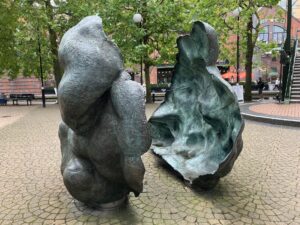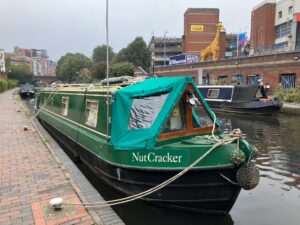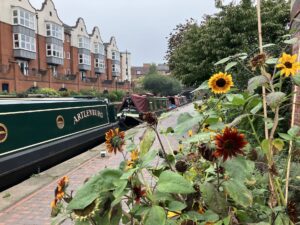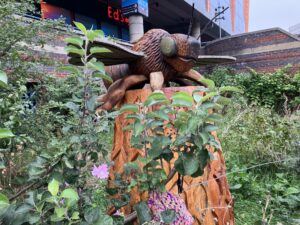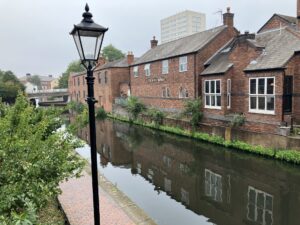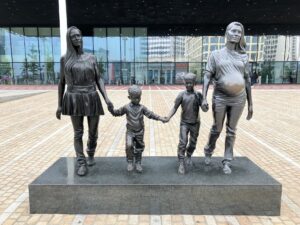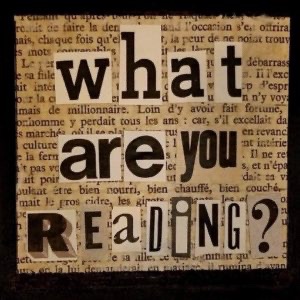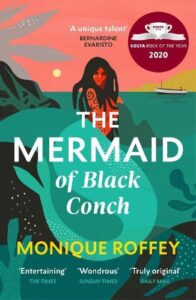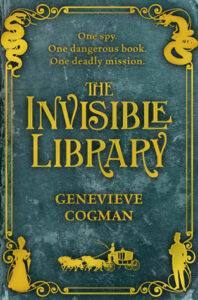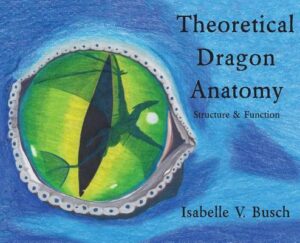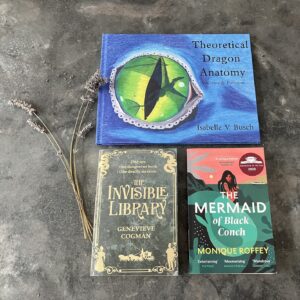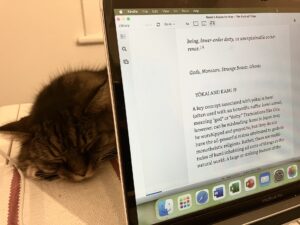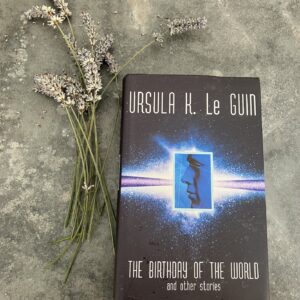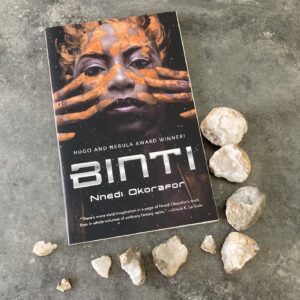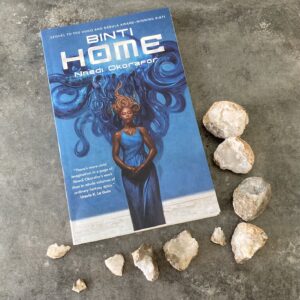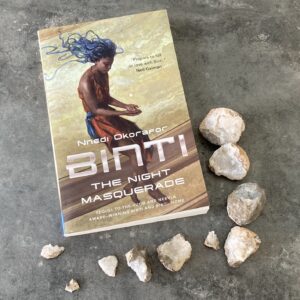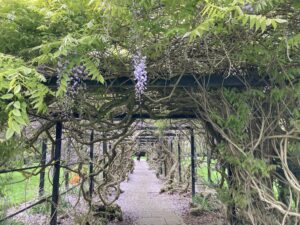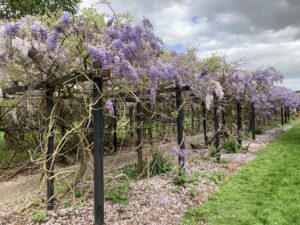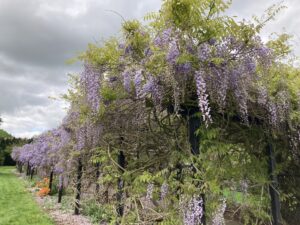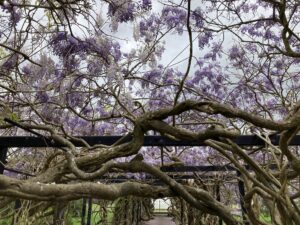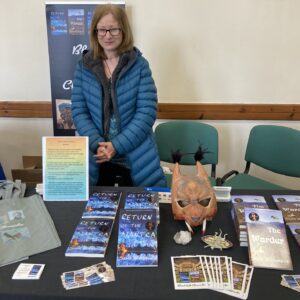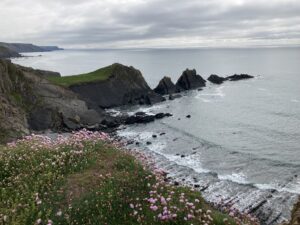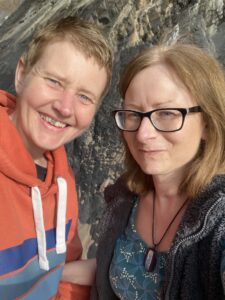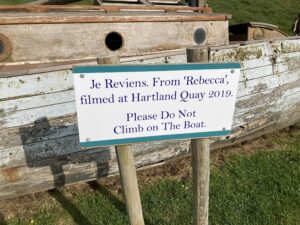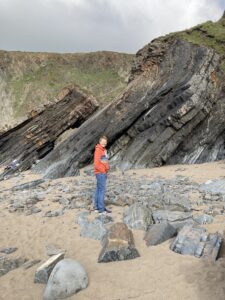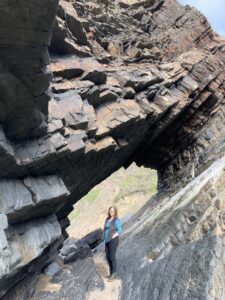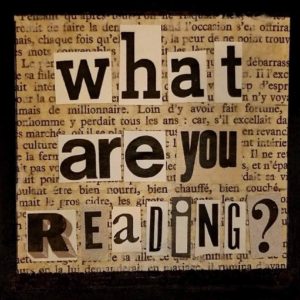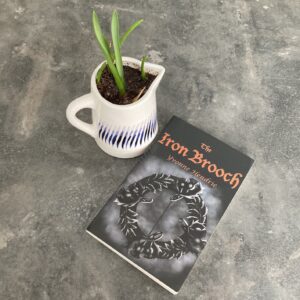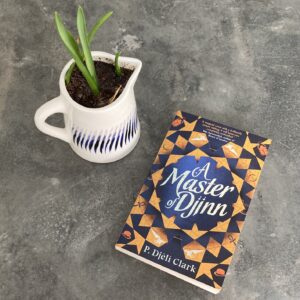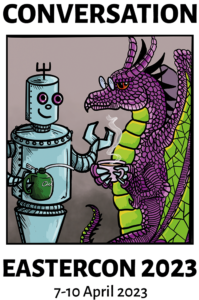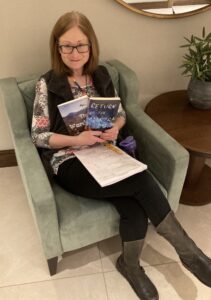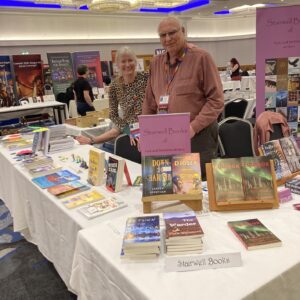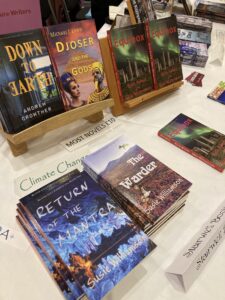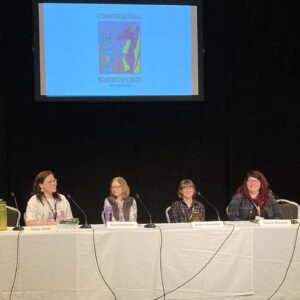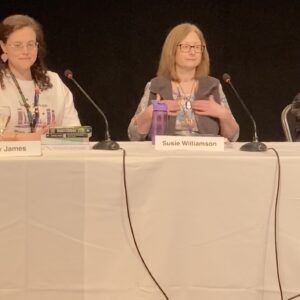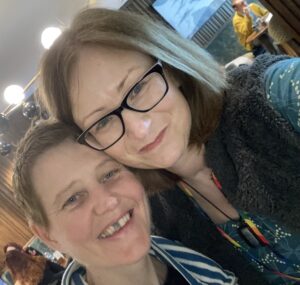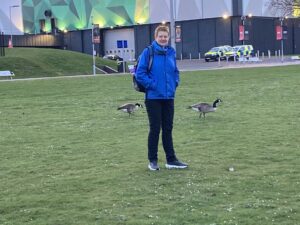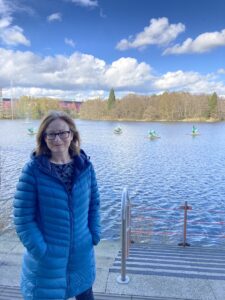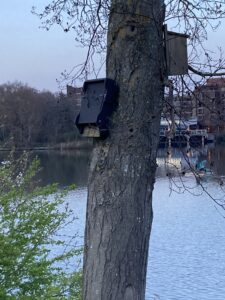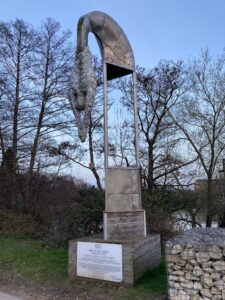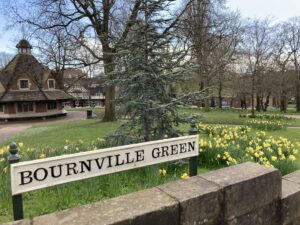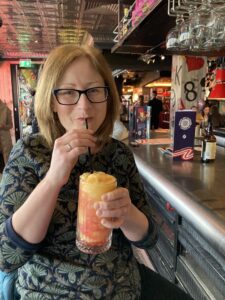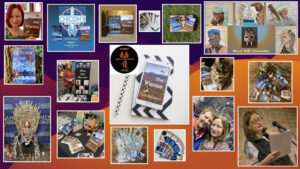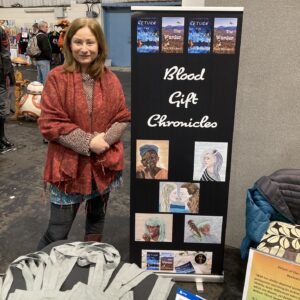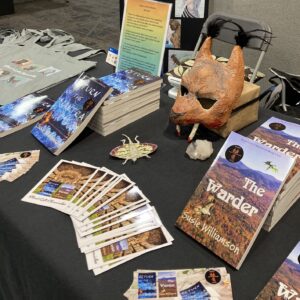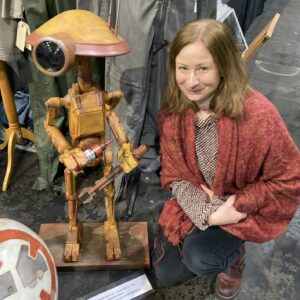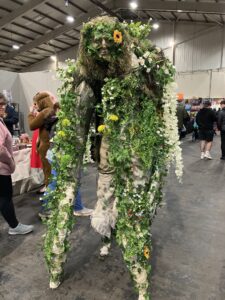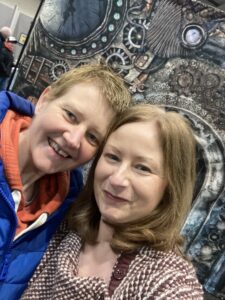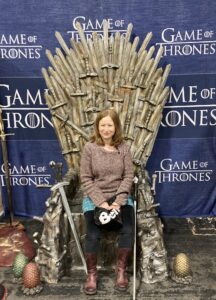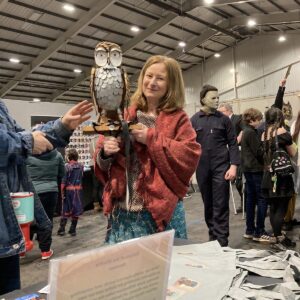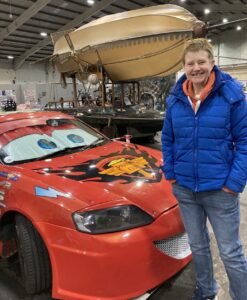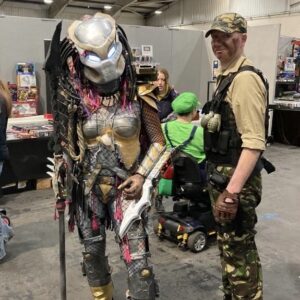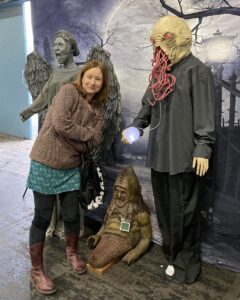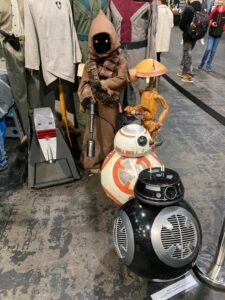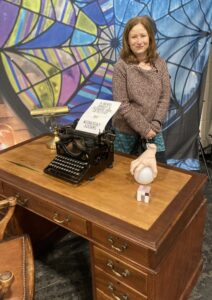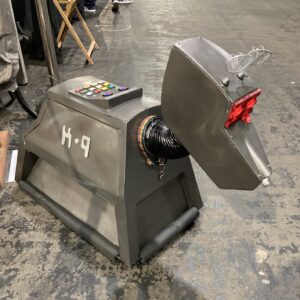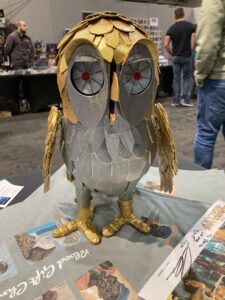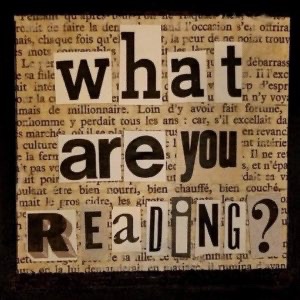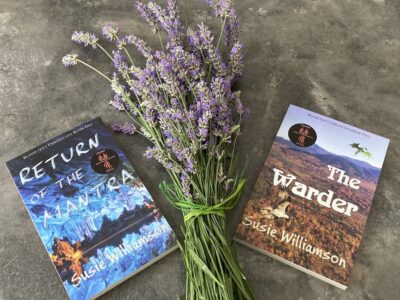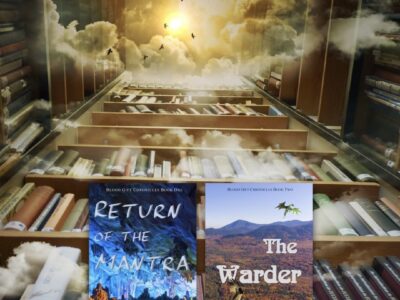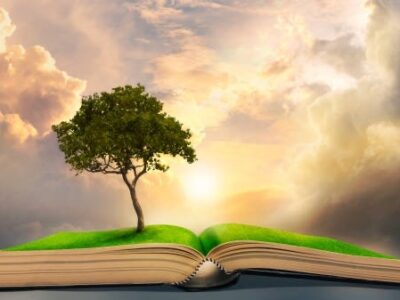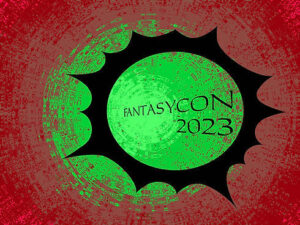
A thoughtful pause following a recent trip to Birmingham for FantasyCon 2023. And another great convention exploring the depth and breadth of this fascinating genre. With such a diverse range of books and authors represented, perspectives gave illuminating insights and reflective interpretations on life and the stories they inspire.
As an author focused on creating colourful worlds filled with flora, fauna and a touch of magic, woven into plots that reflect and inspire, told by characters across a range of complexities, it was great to join in with some panel discussions.

Feminism in fantasy is an ongoing conversation, challenging gender stereotypes and subverting expectation, exploring the intersections, and discussing the range of ways stories can reflect the past and the present, and imagine futures to warn, foretell and/or inspire. It’s a discussion that inevitably leads to differing perspectives and motivations stemming from our own uniqueness, but for me there is one immutable truth: without diverse representation in the authors, we can expect no representation in the characters, and that without widespread cultural representation, the conversation falls flat. Feminism is of course not a monolith. And there’s such a wealth of work out there, spanning the globe. Personal favourite authors include Nnedi Okorafor, Eugen Bacon, Nghi Vo, N.K. Jemison, Gabriela Houston, Rivers Solomon… A couple of personal highlights from the convention: meeting Guest of Honour, Tasha Suri, whose work I love. And having breakfast with the wonderful Juliet McKenna, sharing fascinating conversation on all things representation. Not to mention spying the lovely Joanne Harris, who forever leaves the taste of Chocolat.

Another panel highlight was on the subject of nature and ecology, a conversation that only tipped the surface on all the weird and wonderful wild life. Where do we draw our inspiration from? My work encompasses traditional inspiration in the form of fire-breathing dragons, as well as invention: a magical hybrid that readers of my first book, Return of the Mantra, would recognise; and the hybrids of Book 2, The Warder, trapped in that in-between place. There’s a danger of going with something too familiar, tired tropes can make for dull reading. Which is why my dragons are my own unique take, derived from the storyline, inextricably linked to their human counterpart. Their creation and subsequent properties are fully fitting with the environment, their biology is as clear to me as the long-toed monkey in the sacred forest of my first book. Book 3, my work in progress is the origin story of their creation, and leads us to the water dragons, or at least my own new take. Magic, the world, and all that lives there, has to make sense to its own rules, to the plotlines, and, to a greater or less degree, to science. Magic might give some colourful flexibility, but I look for immutable truths. Writers know way more about their worlds than whatever makes the page, and the same is true for me with my wildlife. The camouflage properties of dragons may not be explained in the story, but biology has explained it to me, and so I know, I know, that my dragons can be as real as a blackbird’s song.
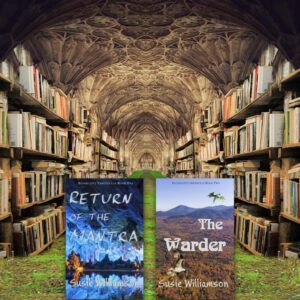
I found a lot of connectivity in the discussions I was involved in: worlds built around nature and magic, overturning patriarchal systems of control and returning to our roots, strands of magic and the individuals they are gifted to… Characterisation is dependent on perspectives, and once we understand how those perspectives can fit together, there is no telling what might be accomplished. My characters save themselves, save each other, and work to unpick damaging systems of control. They have magical gifts which connect them to the land and each other. And in my reading, I shared insight into the three leading characters of Book 2, The Warder, revealing gifts that unchecked, could leave them disconnected, but with knowledge, can lead to magical ends.
Last but not least, I’ll leave you with a few sights of Birmingham, spots of nature that gave a wonderful breath of fresh air…

